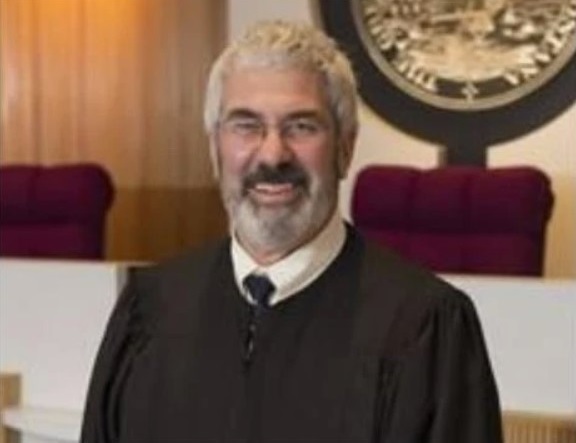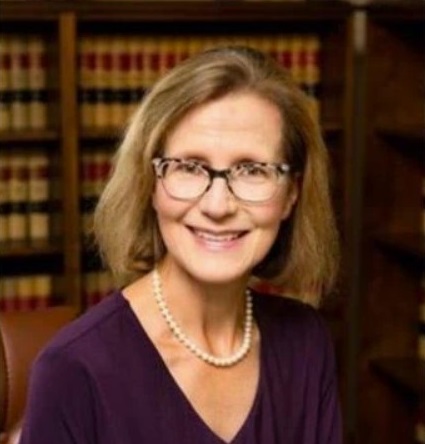HELENA (MT)
Bitter Winter - Center for Studies on New Religions [Torino, Italy]
August 4, 2022
By Massimo Introvigne
The Telegraph’s podcast criticized a 2020 decision by the Supreme Court of Montana that protected the confessional privilege. But it correctly applied the law.
Article 4 of 5. Read article 1, article 2, and article 3.
Call Bethel, the Telegraph’s podcast, also discusses cases in the United States. In particular, we hear the voices of the plaintiffs in a case in the American state of Montana, where they obtained a verdict of $35 million against the Jehovah’s Witnesses. The verdict was reversed by the Supreme Court of Montana on January 8, 2020, which affirmed that the Jehovah’s Witnesses were excepted from Montana’s mandatory reporting laws in cases of sexual abuse of children because the information obtained by the elders was protected by the confessional privilege.
The podcast includes an ironical comment by one of the plaintiffs after the Supreme Court decision: “Congratulations Watchtower. You won the right to keep sexual abuse secrets. You know, that’s a little [messed] up, if you ask me.” The impression created is that, for some arcane American legal technicality, the Jehovah’s Witnesses were authorized to “keep sexual abuse secrets” and shield the abusers from legal prosecution.
This is a typical case where what was at stake was the confessional privilege, a theme I have introduced in the first article of this series. In fact, the Supreme Court of Montana examined precisely whether what the Jehovah’s Witnesses had been accused of not having disclosed to the secular authorities was information obtained during a “confession.”
The Montana case was about a man called Maximo Nava-Reyes, who in 1994 married a fellow member of a Jehovah’s Witnesses’ congregation in Thompson Falls, Montana. The woman had two daughters and one son. One daughter and the son revealed to the congregation’s elders that they had been sexually molested by Nava-Reyes. In 2004, they convened an ecclesiastical judicial committee, obtained his confession, and disfellowshipped him.
One year later, he managed to persuade the elders that he was genuinely repentant and determined to change his ways, and was reinstated as one of the Jehovah’s Witnesses. Unbeknownst to the elders and other members of the family, however, he was now molesting a small girl. His wife had two daughters. One had accused Nava-Reyes of abuse; the other was the mother of the young girl, called “Lexi” in the podcast.
In 2016, Lexi and her aunt, who had also been molested, sued the Jehovah’s Witnesses claiming that, had they reported to the secular authorities Nava-Reyes’s wrongdoings and confession in 2004, he would have been stopped and prevented from causing further damage.
As mentioned in a previous article, the Jehovah’s Witnesses have now a policy under which their elders are instructed to report to the police credible instances of sexual abuse even if reporting is not mandatory under local laws. In 2004, this policy was not yet in force, but the elders were instructed to comply with mandatory reporting laws where they existed.
In 2004, the Jehovah’s Witnesses interpreted Montana law to the effect that reporting was mandatory in principle, but statements received as confessions should not be disclosed under the confessional privilege. Montana law stated that, “A member of the clergy or a priest is not required to make a report under this section if the communication is required to be confidential by canon law, church doctrine, or established church practice.”
The Supreme Court’s decision is important because it deals with the argument that if a confession is rendered to more than one priest or elder and notes are taken there is no confessional privilege. Statutes protecting the secrecy of confession were passed with the Catholic model in mind, but it was later recognized that restricting the confessional privilege to the Catholic one-on-one confession would unjustly favour the Catholic Church over other religious organizations where confessions are received by committees rather than by a single minister.
American courts in cases concerning the Church of Jesus Christ of Latter-day Saints and other denominations had already stated that a communication can be a “confession” and remain protected by the confessional privilege even if the sinner confesses to more than one priest or elder, if notes are taken of the confession, and these are shared with others in the religious organizations’ hierarchy, provided confidentiality remains guaranteed throughout the process.

As early as 1917, in the case “Reutkemeier v. Nolte,” the Supreme Court of Iowa extended the confessional privilege to a “confession of sin” made by a Presbyterian woman to her pastor and three congregational elders. In 1994, the Supreme Court of Utah concluded that confessions made to a Latter-day Saint bishop (the equivalent of a parish priest) did not lose their privileged status because the bishop later transmitted them for review to a Stake (the equivalent of a diocese) High Council Court.
Other decisions reached the same conclusion, with a federal appeals court stating in 1990 that excluding from privilege confidential communications that reached more than one minister of the same religious body would risk “restricting the privilege to Roman Catholic penitential communications” only, which would be constitutionally impermissible.
The Supreme Court of Montana agreed. The plaintiffs had argued that since Nava-Reyes’ confession was known by multiple local elders and had been forwarded to the New York-based headquarters of the Jehovah’s Witnesses, it was not truly a confession and was not protected by the confessional privilege. The Supreme Court, however, noted that among the Jehovah’s Witnesses the process of receiving confessions necessarily “involves multiple elders and congregation members” and this is not inconsistent with its confidentiality.
While Lexi’s attorney claimed that a confession can only be “a communication between two people” (and not more than two), the Supreme Court agreed with the Jehovah’s Witnesses that “imposing a narrow definition of confidentiality impermissibly could discriminate between different religious beliefs and practices, protecting confidentiality of reports made in a confession from a parishioner to priest, like the traditional Catholic practice, while offering no protection to a congregant’s disclosures to a committee of elders using a process like that followed by the Jehovah’s Witnesses.” As mentioned earlier, this is consistent with previous U.S. case law.

The Telegraph’s podcast presented the Montana case outside of the ongoing debate on the confessional privilege. It failed to explain that what was at stake was the secrecy of confession, and that American courts for more than one hundred years have maintained that restricting the protection of confession to the Catholic one-on-one model would create a constitutionally impermissible discrimination between different religions.
Not being told of this context, those who listened to the podcast might only conclude that the Jehovah’s Witnesses exploited some strange loopholes of American law to protect a sexual abuser—while in fact what they protected was the principle that the content of confessions to religious ministers should not be disclosed, and the devotees’ trust that it will not.
Massimo Introvigne (born June 14, 1955 in Rome) is an Italian sociologist of religions. He is the founder and managing director of the Center for Studies on New Religions (CESNUR), an international network of scholars who study new religious movements. Introvigne is the author of some 70 books and more than 100 articles in the field of sociology of religion. He was the main author of the Enciclopedia delle religioni in Italia (Encyclopedia of Religions in Italy). He is a member of the editorial board for the Interdisciplinary Journal of Research on Religion and of the executive board of University of California Press’ Nova Religio. From January 5 to December 31, 2011, he has served as the “Representative on combating racism, xenophobia and discrimination, with a special focus on discrimination against Christians and members of other religions” of the Organization for Security and Co-operation in Europe (OSCE). From 2012 to 2015 he served as chairperson of the Observatory of Religious Liberty, instituted by the Italian Ministry of Foreign Affairs in order to monitor problems of religious liberty on a worldwide scale.
